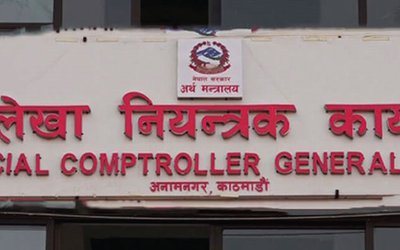The importance of free trade has never been more evident than in the last 20 years. During this period the amount of people participating in the global economy has skyrocketed from 1 billion people to around four billion. But with the fiscal cliff, tax reform and fears of protectionist actions by countries around the globe, could the future of free trade be weakened?
Austan Goolsbee, former Director of the President’s Council of Economic Advisers and an Economics Professor at the University of Chicago’s Booth School of Business, says this boom in economic participation is because of the expansion of free trade. “It is not only access to the U.S., but it is also arguably the single most important thing for the development of emerging economies,” he said. “The ability to export on trade has been a central pillar for bringing a billion people out of poverty in the last 15 years. China and India have seen a huge boom in development, moving up from poor countries to middle-income. Historically, free trade is fundamental for innovation. Countries that trade are more open outside of their borders. They are open to new ideas, which spark innovation and economic growth.”
This makes sense, as countries become more prosperous and the private sector strengthens, the standards of living of their people also increase, which then boosts demand for raw materials and products. The shipping industry has played a critical part in this economic expansion. The synergies between the industry and the economy are as congruent as they come. When economies are thriving, energy consumption increases, which then pushes up tanker rates.
The global economy continues to grow as countries like China and India evolve economically and the population of their middle class grows. One way to measure the health of a nation’s economy is through the items shipped to it – dry bulk, container or tankers. Gerry Wang, CEO of Seaspan, says thanks to this wealth effect and free trade that the container industry has been growing consistently at 10 percent. “That growth will be compounded over the next 20 to 25 years,” he said. “It’s a high-growth industry, and we know that new ships will be needed going forward.”
One of the biggest game changers in the global economy has been the energy discoveries in the United States. But even with the predictions that the U.S. will take the number one spot in oil production by 2020, shipping leaders are keeping a close eye on the political uncertainties related to budgets, taxes, and the unintended consequences of regulation. Morten Arntzen, CEO of OSG, views the Obama Administration’s rhetoric on the oil companies, EPA standards, and the un-official moratorium on refining in the Gulf of Mexico as key areas of concern. “I do think the Obama Administration is incredibly hypocritical, saying they don’t want high gasoline prices, when Energy Secretary Chu has said they favor it. Of course they want higher gasoline prices, because we all know the only way to change fossil fuel consumption is by higher prices.”
Regulations isn’t the only worry when it comes economic expansion. Tax experts warn the tax deductions and credits for oil and gas companies that are on the fiscal cliff chopping block could have a devastating impact on revenues which could impact jobs and trade. “The resulting job creation, profits, and investment activity will yield a gusher of receipts if allowed to continue.” said Pete Sepp, National Taxpayers Union Executive President. “Our tax system is already a convoluted, uncompetitive mess — adding punitive tax increases like the Repeal Big Oil Tax Subsidies Act, into the mix will make matters worse.”
Shipping CEOs like Robert Yuksel Yildirim of YILDRIM Holding AS said the current tax system isn’t the only deterrent for foreign investing, it’s the regulatory environment that also makes the U.S. not appealing to foreign investors. ”Why would I come in to the U.S. where you will have high tariffs and environmental problems with the authorities because people want to create problems? 30 years ago when I came to the U.S. it was a dream for everybody. That’s not the case anymore… America needs to build itself by enlightening the people who have the money. Instead, people are investing in China, or somewhere else. But the U.S., I think, has an opportunity today because of their energy resources. If I were them, I would give incentives to companies to set up shop, invest money and create jobs here in America.” he said, “Government can’t squeeze investors because you will kill them or they will run away. America needs to advertise itself to the world again.”
But in a world where countries like the U.S. and Europe are trying to procure their own regulations to “Buy American” or “Buy European”, businesses wait to see if the walls of protectionism will go up and the prosperity nations around the world have experienced will go down. The future of free trade is in the hands of the politicians. The question is, will they rise above petty politics and do what’s right for the global economy.
Lori Ann Larocco is a CNBC producer, columnist, and author of “Dynasties of the Sea: The Shipowners and Financiers Who Expanded the Era of Free Trade” (Marine Money).
- TANAHU HYDROPOWER PROEJCT: A Significant Achievement
- Apr 15, 2024
- AMBASSADOR HANAN GODAR: Sharing Pain With A Nepali Family
- Mar 30, 2024
- VISIT OF KfW AND EIB TO NEPAL : Mission Matters
- Mar 25, 2024
- NEPAL BRITAIN SOCIETY: Pratima Pande's Leadership
- Mar 24, 2024
- NEPAL ARMY DAY: Time To Recall Glory
- Mar 15, 2024
















